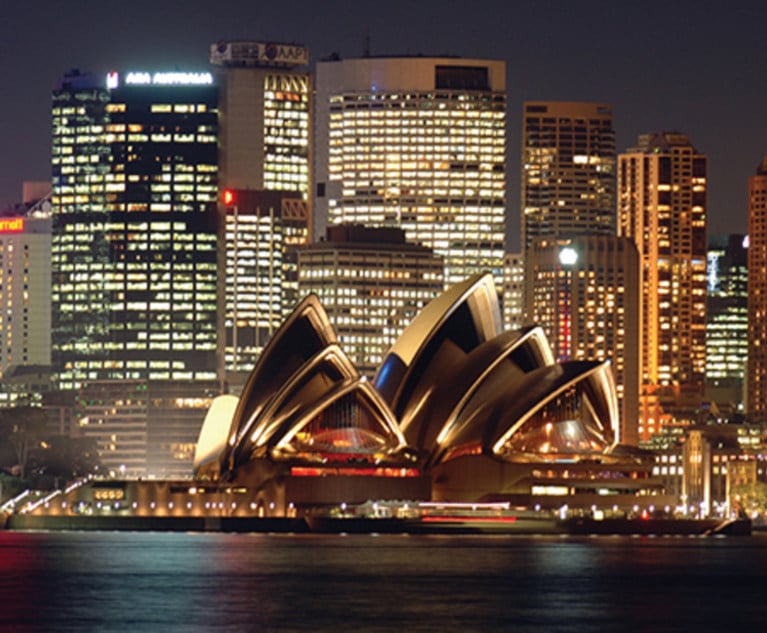 Nike, one of the world's largest suppliers of athletic shoes and apparel, has been fined $14.2 million by the European Union for anti-competitive practices. Photo: Shutterstock
Nike, one of the world's largest suppliers of athletic shoes and apparel, has been fined $14.2 million by the European Union for anti-competitive practices. Photo: ShutterstockEU Fines Nike $14.2M for Anti-Competitive Practices
Margrethe Vestager, the EU's antitrust czar, said the conditions the company imposed on merchants preventing them from selling soccer jerseys and other merchandise throughout the EU led to "less choice and higher prices for consumers."
March 25, 2019 at 12:05 PM
3 minute read
The European Commission has fined U.S. sportswear maker Nike Inc €12.5 million ($14.2 million) for anti-competitive practices that prevented traders from selling merchandise branded with leading soccer clubs' logos outside their national markets.
Margrethe Vestager, the E.U.'s antitrust czar, said the conditions the company imposed on merchants preventing them from selling soccer jerseys and other merchandise throughout the EU led to "less choice and higher prices for consumers". The commission's decision would ensure that consumers will be able to shop around for a "larger variety of products and for the best deals", she said.
The fine follows an investigation by the commission into Nike's licensing and distribution practices, which was launched in June 2017. The investigation looked at arrangements where Nike was granting licences to manufacturers to make goods using trademarks and copyrights of some of Europe's biggest soccer clubs, including Barcelona, Manchester United and AS Roma.
Nike's main business is designing and selling sportswear but it also acts as a licensor, meaning it can grant licences to third parties to manufacture merchandise such as mugs, scarves and keyrings, featuring soccer clubs' logos.
The commission found that Nike had used a series of measures to prevent licensees from selling their goods outside their national markets. This is illegal under E.U. competition rules, which guarantee the rights of businesses to sell their goods and services freely anywhere in the E.U.'s 28 member countries.
These measures included clauses banning out-of-territory sales outright, requiring licensees to consult Nike, or imposing double royalties for sales outside merchants' home markets. In some cases, licensees were threatened with losing their contracts if they broke the clauses restricting them to their home market.
This practice went on for 13 years, the commission found.
The commission reduced the total fine by 40 percent because Nike had cooperated in the investigation beyond its legal obligations, by providing information that allowed the scope of the investigation to be extended.
Businesses and consumers have the right to pursue compensation for damages through their national courts.
This content has been archived. It is available through our partners, LexisNexis® and Bloomberg Law.
To view this content, please continue to their sites.
Not a Lexis Subscriber?
Subscribe Now
Not a Bloomberg Law Subscriber?
Subscribe Now
NOT FOR REPRINT
© 2024 ALM Global, LLC, All Rights Reserved. Request academic re-use from www.copyright.com. All other uses, submit a request to [email protected]. For more information visit Asset & Logo Licensing.
You Might Like
View All

Kennedys and Irwin Mitchell Replace Longstanding Leaders

Asia's Top Stories 2024: Departures, Layoffs and Breakups at the Likes of Kirkland, Skadden and Mayer Brown

Hogan Lovells M&A Partner Returns to Baker McKenzie Ahead Australia Exit
2 minute readTrending Stories
Who Got The Work
Michael G. Bongiorno, Andrew Scott Dulberg and Elizabeth E. Driscoll from Wilmer Cutler Pickering Hale and Dorr have stepped in to represent Symbotic Inc., an A.I.-enabled technology platform that focuses on increasing supply chain efficiency, and other defendants in a pending shareholder derivative lawsuit. The case, filed Oct. 2 in Massachusetts District Court by the Brown Law Firm on behalf of Stephen Austen, accuses certain officers and directors of misleading investors in regard to Symbotic's potential for margin growth by failing to disclose that the company was not equipped to timely deploy its systems or manage expenses through project delays. The case, assigned to U.S. District Judge Nathaniel M. Gorton, is 1:24-cv-12522, Austen v. Cohen et al.
Who Got The Work
Edmund Polubinski and Marie Killmond of Davis Polk & Wardwell have entered appearances for data platform software development company MongoDB and other defendants in a pending shareholder derivative lawsuit. The action, filed Oct. 7 in New York Southern District Court by the Brown Law Firm, accuses the company's directors and/or officers of falsely expressing confidence in the company’s restructuring of its sales incentive plan and downplaying the severity of decreases in its upfront commitments. The case is 1:24-cv-07594, Roy v. Ittycheria et al.
Who Got The Work
Amy O. Bruchs and Kurt F. Ellison of Michael Best & Friedrich have entered appearances for Epic Systems Corp. in a pending employment discrimination lawsuit. The suit was filed Sept. 7 in Wisconsin Western District Court by Levine Eisberner LLC and Siri & Glimstad on behalf of a project manager who claims that he was wrongfully terminated after applying for a religious exemption to the defendant's COVID-19 vaccine mandate. The case, assigned to U.S. Magistrate Judge Anita Marie Boor, is 3:24-cv-00630, Secker, Nathan v. Epic Systems Corporation.
Who Got The Work
David X. Sullivan, Thomas J. Finn and Gregory A. Hall from McCarter & English have entered appearances for Sunrun Installation Services in a pending civil rights lawsuit. The complaint was filed Sept. 4 in Connecticut District Court by attorney Robert M. Berke on behalf of former employee George Edward Steins, who was arrested and charged with employing an unregistered home improvement salesperson. The complaint alleges that had Sunrun informed the Connecticut Department of Consumer Protection that the plaintiff's employment had ended in 2017 and that he no longer held Sunrun's home improvement contractor license, he would not have been hit with charges, which were dismissed in May 2024. The case, assigned to U.S. District Judge Jeffrey A. Meyer, is 3:24-cv-01423, Steins v. Sunrun, Inc. et al.
Who Got The Work
Greenberg Traurig shareholder Joshua L. Raskin has entered an appearance for boohoo.com UK Ltd. in a pending patent infringement lawsuit. The suit, filed Sept. 3 in Texas Eastern District Court by Rozier Hardt McDonough on behalf of Alto Dynamics, asserts five patents related to an online shopping platform. The case, assigned to U.S. District Judge Rodney Gilstrap, is 2:24-cv-00719, Alto Dynamics, LLC v. boohoo.com UK Limited.
Featured Firms
Law Offices of Gary Martin Hays & Associates, P.C.
(470) 294-1674
Law Offices of Mark E. Salomone
(857) 444-6468
Smith & Hassler
(713) 739-1250







